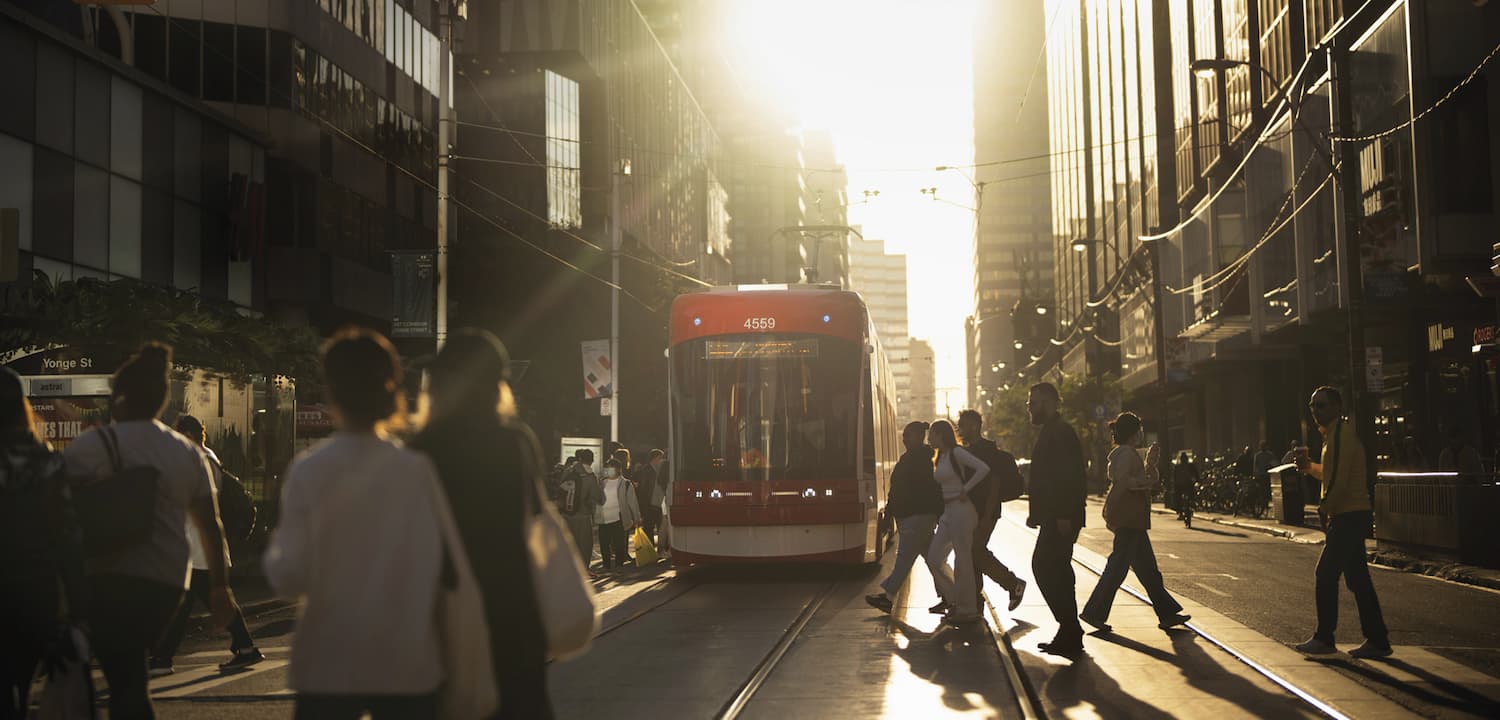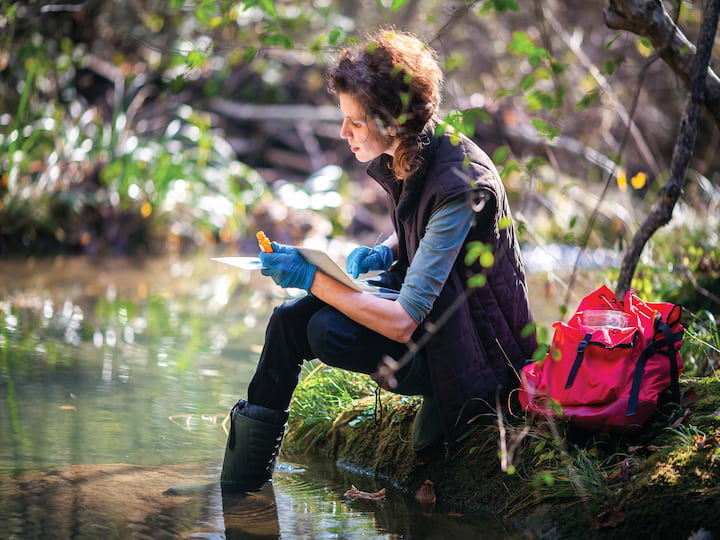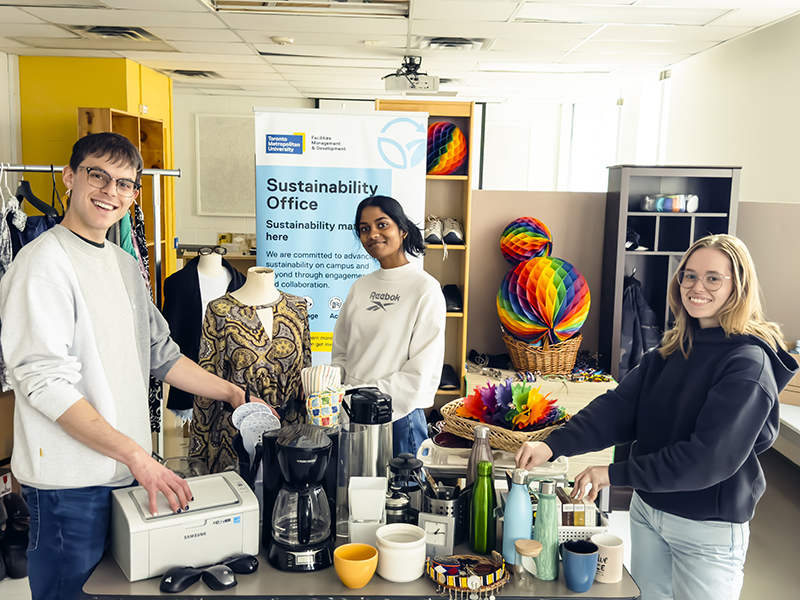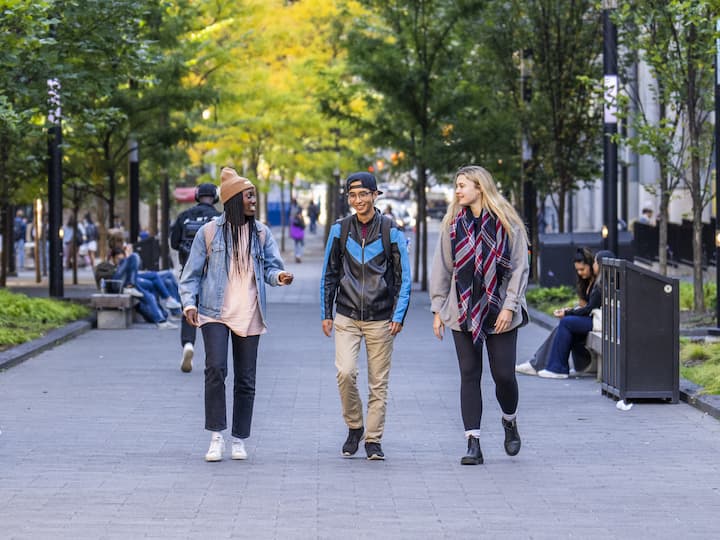SDG 12: Responsible Consumption and Production


SDG 12: Responsible Consumption and Production
TMU is deeply committed to being a responsible corporate citizen. As such, we are doing our part to support responsible consumption and production by implementing policies and guidelines that encourage sustainable facilities, ensure ethical procurement decisions and support the next generation of climate leaders.
From our course offerings to cutting-edge research and our physical spaces to our way of life, our efforts towards responsible consumption and production span various aspects of our university.
TMU campus recycled or composted 486.98 metric tonnes of material in 2023.
11,660 kg of materials were diverted from landfill through the Branded Materials Transition Project as of August 2023.
10,000 kg of furniture was diverted from landfills through the Furniture Rehome Program in 2024.
The Free Store program has rehomed more than 10,350 items, with an estimated value of more than $100,000, since its first pop-up in 2022.
Our goals in action

Empowering future leaders to advance our shared goal of responsible consumption and production begins with education. Through a range of courses across disciplines and credential levels, TMU is shaping a generation of advocates who are committed to reducing waste and innovating to support sustainable consumption practices.
- The Department of Geography and Environmental Studies offers a Minor and a BA (Hons) in Environment and Urban Sustainability, as well as a MASc and a PhD in Environmental Applied Science and Management.
- The Chang School of Continuing Education offers courses and certificate programs on sustainability topics. Check the school’s websites for current offerings.
- Students from any academic background who wish to advance their sustainability knowledge and skills can consult (google doc) TMU’s sustainability course inventory (external link) to find courses that are of interest to them.
TMU seeks to advance knowledge related to responsible consumption and production through high-quality scholarly, research and creative activity. A number of our researchers are actively engaged in work aimed at reducing pollution and waste and protecting the natural environment. We also have campus programs in place to encourage responsible lab practices.
- The Emerging Contaminants Lab uses advanced mass-spectrometry, as well as computer models and statistical tools, to investigate the fate and behaviour of contaminants in the environment, track contaminant emission and exposure pathways (including identifying specific sources), and develop new analytical and risk analysis methods.
- The Green Labs Program at TMU presents an opportunity for lab users to lead by example and implement safe and sustainable solutions to reduce the environmental footprint of their labs. Participants learn about sustainability best practices, exchange ideas, participate in events and competitions, and access resources designed to help them succeed.
TMU is committed to sustainable waste management practices. By reducing our consumption, reusing more, recycling and composting, we are sending less waste to landfill. We are also helping to preserve precious natural resources and contributing to efforts to save energy, conserve water and reduce greenhouse gas emissions and other pollution.
The Sustainability Office provides programming, education and outreach on ways to reduce the waste generated on campus and help divert waste from landfills through proper recycling and composting practices.
- TMU’s Sustainability Action Plan is a five-year plan to guide transformative change and empower our community members to contribute meaningfully towards a greener, more inclusive future. Goal #2 in the plan is to achieve a “zero-waste” campus by 2035.
- Toronto Metropolitan University conducts annual waste audits in order to understand our waste streams and improve our waste management. This information also helps us identify ways to improve our diversion rate by developing and implementing plans to reduce, reuse and recycle. Data on campus waste is published on the university’s website.

TMU recognizes that all of our community members can contribute to the goal of responsible consumption and production. Our students are fully committed to supporting sustainability and look to the university for leadership in this area. In response, we have put initiatives in place on campus to reduce waste originating from on-campus dining areas and enable students to reuse books and home furnishings.
- TMU Eats introduced the OZZI reusable to-go container program to the Pitman and ILC dining halls to reduce waste and single-use food packaging by encouraging students, faculty and staff to forgo disposable containers for a more sustainable takeout option. Each reusable to-go container is 100% recyclable and can be used up to 300 times.
- The TMU Free Store is a pop-up store dedicated to helping TMU students reduce their environmental impact and save money. Students can choose from a variety of gently used items like office supplies, electronics, home decor, kitchen supplies, books and more, all at no cost.
The university understands its responsibility as a community builder to champion collective responsibility. That’s why we have implemented initiatives both on campus and within the community aimed at reducing waste and pollution while promoting responsible consumption and production.
- TMU's Sustainable Purchasing Guidelines are designed to reduce the environmental impact of purchasing decisions and ensure purchases are aligned with university-wide sustainability goals for responsible resource management and social sustainability.
- To encourage responsible consumption habits, TMU’s Sustainability Office organizes events on campus throughout July to support Plastic-Free July. Students, staff and faculty participate in a series of sustainability challenges, leading to thousands of individual actions to reduce plastic consumption.

Stories
